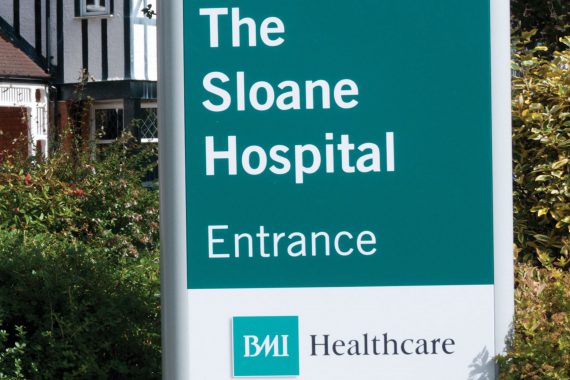Exclusive A major Pulse investigation has revealed that private companies are boosting their profits by up to 100% as the health service struggles to cope.
An analysis of company reports and statements from all the major private hospital chains that make their figures available shows all have boosted their revenues this year.
They say they are gaining from the plight of the NHS, with patients more likely to pay for their care to avoid lengthening NHS waiting lists, which have led to 3.7 million NHS patients wait for treatment – the most since December 2007.
The investigation – the most comprehensive since the introduction of the Health and Social Care in 2012 – also shows that local commissioners are paying hundreds of millions to private hospitals and that hospitals have also boosted their income from private work.
It comes as Pulse yesterday reported that one private GP firm is expanding its service which promises to deliver a GP to patients’ doorsteps in 90 minutes for £120 – one of a number of companies taking advantage of long waiting times for GP appointments.
GP leaders say the Government is undermining the NHS in favour of the private sector through ‘scandalous’ underfunding, and ‘sleepwalking’ us towards a US-style health insurance system.
A recent survey of private healthcare industry leaders concluded the ‘self-pay’ market could grow by 10-15% a year over the next three years.
The Pulse investigation found that companies are looking to expand services to take advantage of waiting lists.
For example:
- BMI Healthcare says it more than doubled its profits last year, reporting a 2.3% overall increase in inpatient and day cases, and a 13.5% rise in its NHS caseload, ‘with waiting list pressure and patient choice driving the increase’.
- Spire, which runs a network of 38 private hospitals, has seen revenue and patient volumes increase by 30% and 20% respectively in the past five years, and expects to see this trend continue. Its 2015 annual report cites the ‘NHS funding gap’ as a key driver and says that, with funding constraints forecast to continue, ‘the independent sector can help to bridge the gap’.
- Nuffield Health – which is not-for-profit – reported a 15% increase in hospital revenue between 2013 and 2015, from £457m to £525m, and an 11% increase in procedures since 2013 from 185,000 to 206,000. It says: ‘NHS is facing an unprecedented financial challenge which will force significant changes. This will further drive a willingness for individuals and organisations to pay for services.’
- Circle reported an increase in revenue of 15% in 2015 and 32% in 2014. It also said patient volumes rose 8% in 2015 and 9% in 2014, with its annual report stating: ‘Pressures facing healthcare are expected to grow. We anticipate increasing patient demand, tighter public finances… and a shift towards more integrated healthcare.’
In August, BMI announced a new ‘general medical admissions service’, which will enable GPs to refer patients quickly for private treatment for a ‘broad range of conditions and illnesses’. The company’s lead for the new service Wouter Van Den Brande tells Pulse it has been introduced in response to the ‘many enquiries received from our patients… who want a viable alternative to queuing to get into an NHS site’.
Meanwhile, other companies who focus on winning NHS contracts have reported problems with the approach.
CareUK says total revenue declined by £5.8m (1.7%) in 2015, but elective procedures rose 10.3%. The decline, it says, came from ‘losses from early termination of a significant but loss-making out-of-hours GP contract in April 2015 and loss of the Sussex/East Surrey OOH contract in March 2015’.
Virgin Care, meanwhile, posted a £9.15m loss in 2014/15 following a £9.9m loss in 2013/14.
GPC chair Dr Chaand Nagpaul says the rise in private use ‘represents a clear diversion of funds out of the NHS and into the private sector’.
Dr Nagpaul says: ‘In many cases private providers will cherry-pick low-risk patients, adding further strain onto impoverished NHS hospitals caring for patients with greater morbidity. This is unfairly undermining the NHS in favour of the private sector.’
BMA council member and former RCGP chair Professor Clare Gerada, who led much of the GP opposition to the 2012 reforms, says: ‘I am afraid that we are sleepwalking into US health system.’
But a DH spokesperson said: ‘This Government was the first to ensure that doctors, not politicians, make decisions about who provides care. In fact, the rate of growth in use of the private sector as a proportion of the NHS budget remains slower than it was before 2010. On the back of a strong economy, we are giving the NHS the £10bn it asked for to fund its own plan for the future.’
David Hare, chief executive of NHS Partners Network – which represents private health companies – said: ’Independent hospitals play a vital role in keeping NHS waiting times low during a time of huge service pressures.
’NHS patients are also increasingly choosing to be treated at private hospitals, paid for at NHS prices, to NHS standards and free at the point-of-use.’
Please note – the figures for Nuffield Health were originally wrongly given as a 37% increase in procedures. We are happy to clarify this was an 11% rise.
Read more on our investigation here
Investigation: Private sector profits as NHS crumbles
How private GP services are expanding
CCGs spending hundreds of millions more on private sector treatment
Trusts earn millions through private work while facing remedial action on waiting lists
Editorial: What do GPs owe the NHS?
Pulse October survey
Take our July 2025 survey to potentially win £1.000 worth of tokens





 Oviva’s fully remote Tier 3 Weight Management programme
Oviva’s fully remote Tier 3 Weight Management programme







